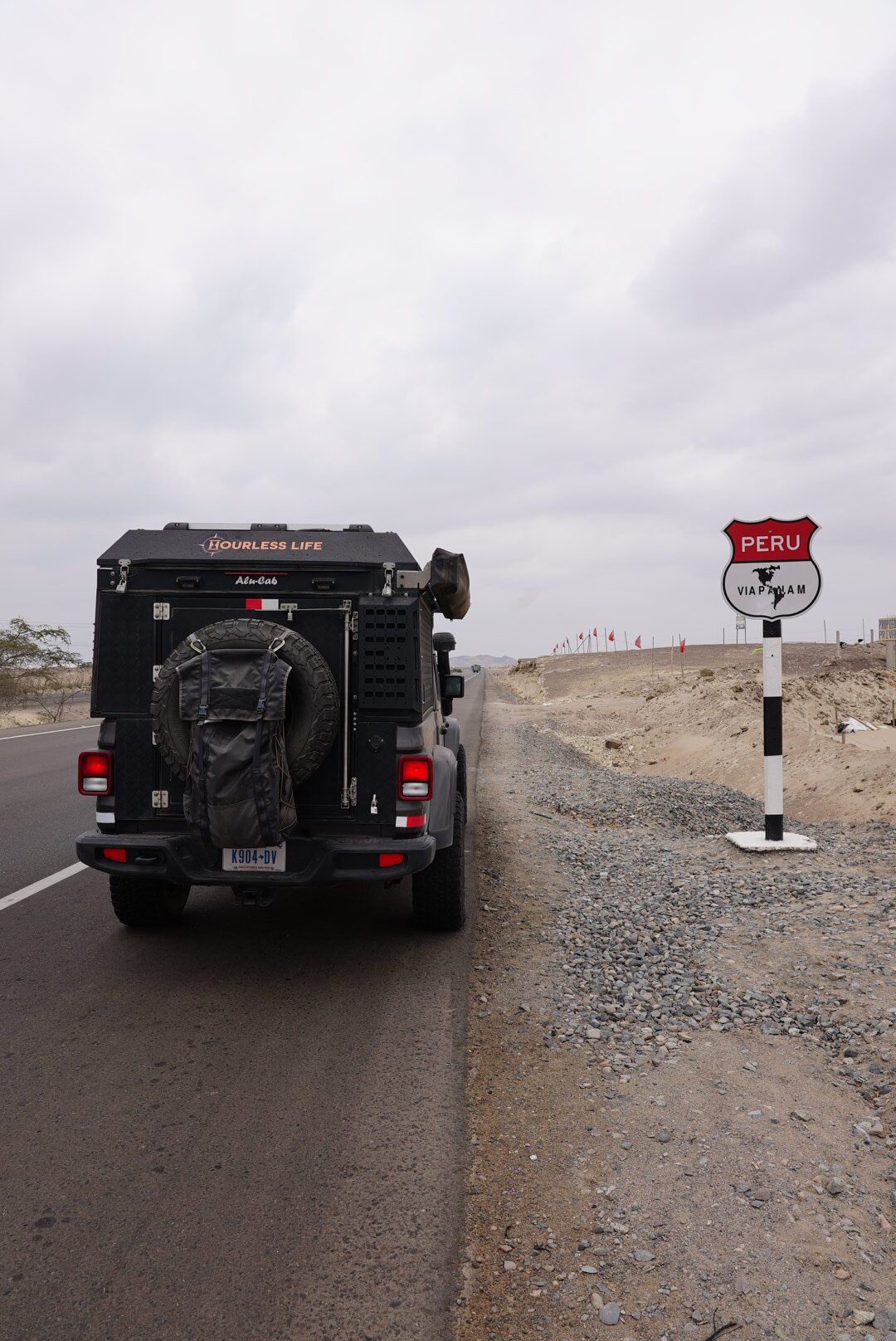The first thing you must know about eight-year-old Caspian Highland is that his entire life has been spent on the road. Home is a Jeep Gladiator equipped with an Alu-Cab Canopy Camper. This has carried him from Mexico to the southern tip of Argentina. Next stop Africa. Family adventure travel? You bet! While most children learn geography from textbooks, Caspian understands it through lived experience, his worldview shaped by the ever-changing horizons as seen from the backseat.
For Eric and Brittany Highland, what began as a stateside RV adventure twelve years ago has evolved into a lifelong mission encapsulated in four simple words: “Love. Explore. Study. Share.” Their Hourless Life story is about extreme travel and vehicle-based endurance. It’s a radical reimagining of what family life can be when conventional boundaries are replaced with global perspectives and the unwavering belief that the world is fundamentally good.
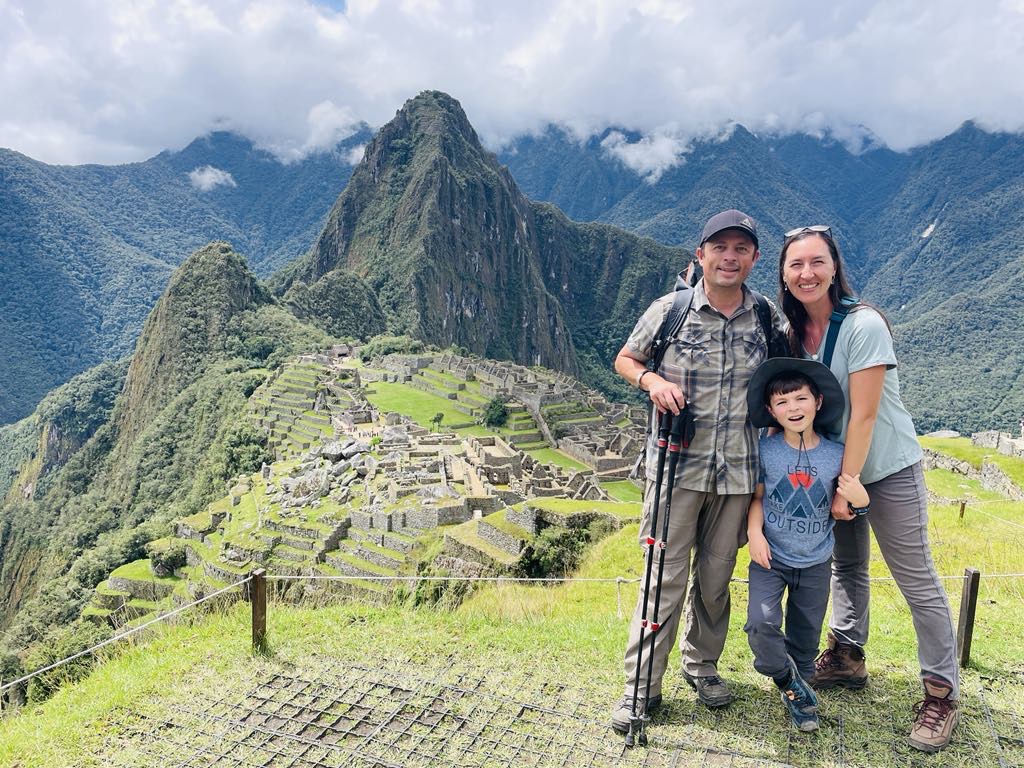
The Evolution of a Family Mission
When the Highlands first articulated their “Love. Explore. Study. Share.” philosophy, it represented ideals they hoped to embody. After four years traversing Latin America, each word has deepened with practical meaning and hard-won wisdom.
“We definitely have a fresh understanding about what the ‘love’ part means,” Brittany reflects. “South America–Patagonia and its aftermath specifically–tested our relationships as we confronted adverse weather conditions, planning fatigue, and electrical issues.” In the tight quarters of their mobile home, love has become less abstract emotion and more daily practice—”a rhythm to learn, with one person compromising their preferences so the other can have a better trip.”
The interplay between “explore” and “study” has likewise evolved beyond romantic expectation into balanced reality. Brittany admits she initially imagined herself “hiking constantly, picking through ruins, poring over museum exhibits, talking to people we met along the way.” While they do these things, she underestimated how much time daily tasks would consume: “all the hours travel planning, driving, washing dishes, doing laundry, taking things out and putting them away.” The revelation? That exploration and study happen as meaningfully in mundane moments as they do at scenic overlooks or archaeological sites.
“Share” has become their anchoring principle—the reason they maintain their YouTube channel, Patreon community, and social media presence despite the effort required. “We would’ve given up on YouTube a long time ago if we weren’t passionate about sharing what people all over the world are really like,” Brittany notes, “or that a family can take a journey like ours and benefit deeply.”
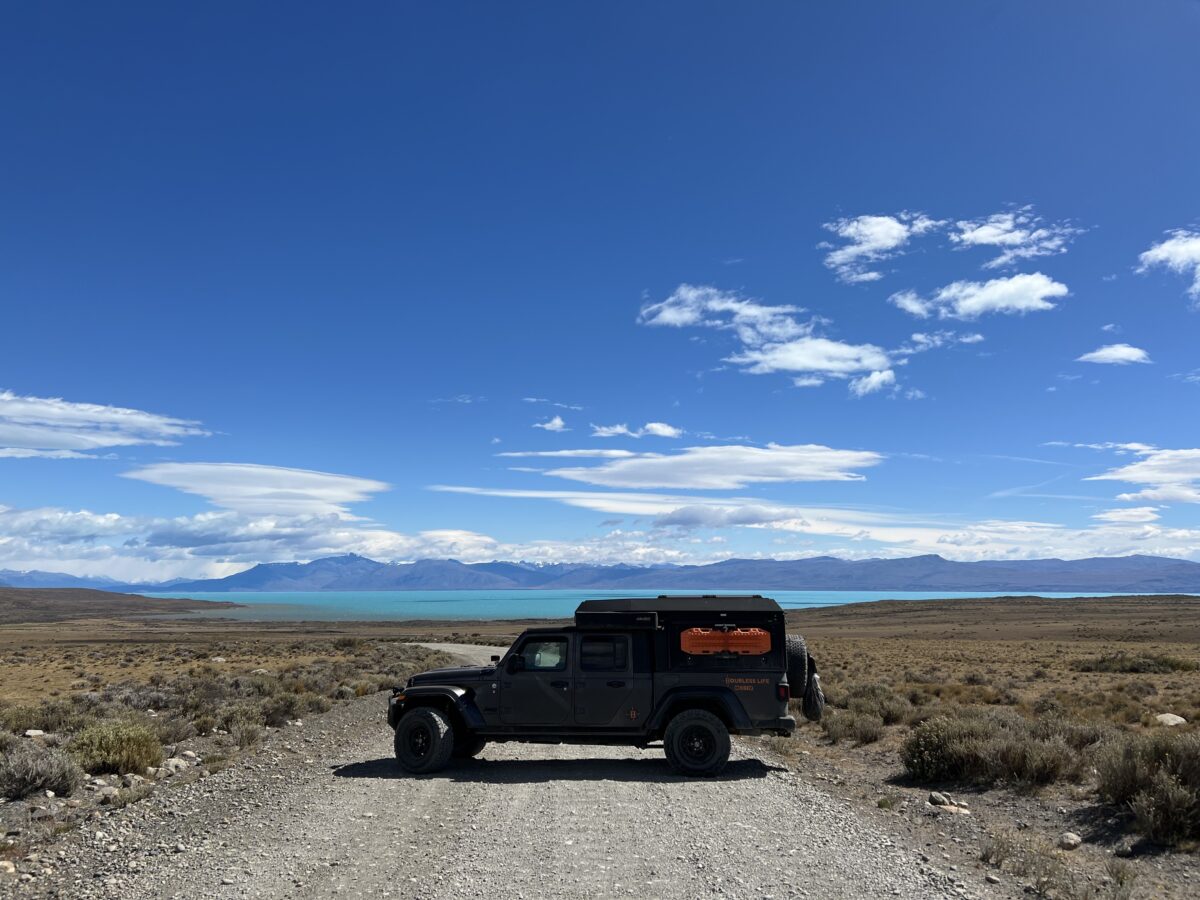
Overcoming Fear
The Highlands’ transition to full-time overlanding occurred in two distinct phases—first within the United States in an RV, then internationally in their Jeep Gladiator. Each required confronting different fears.
During their initial 2014 departure, concerns centered on practicalities: “We definitely had fears about internet connectivity because we owned a boutique online marketing agency and absolutely had to have reliable internet to fulfill commitments to our clients.” With few working-age RVers at the time and no Starlink, they ultimately “leapt into the unknown” after thorough research.
The transition to international travel brought more psychological barriers. “We had to confront the fearmongering of the media and armchair quarterbacks regarding how deathly dangerous it would be to overland in Latin America,” Brittany recalls. “The first time we drove into Mexico, Eric received nasty messages about what a terrible person he was, taking his wife and two-year-old to this place.” Despite intellectual confidence in their decision, Brittany admits, “there were nights I lay awake, wondering if I was a bad mom for putting my child in this position.”
Their solution to both practical and psychological fears? Meticulous preparation balanced with acceptance that some uncertainty remains inevitable. Financial stability proved crucial: “For the first time in our marriage, Eric and I paid off our debt before leaving on this international trip in 2021. We chose to purchase a vehicle we could pay for with cash, rather than taking a car payment around the world with us.”
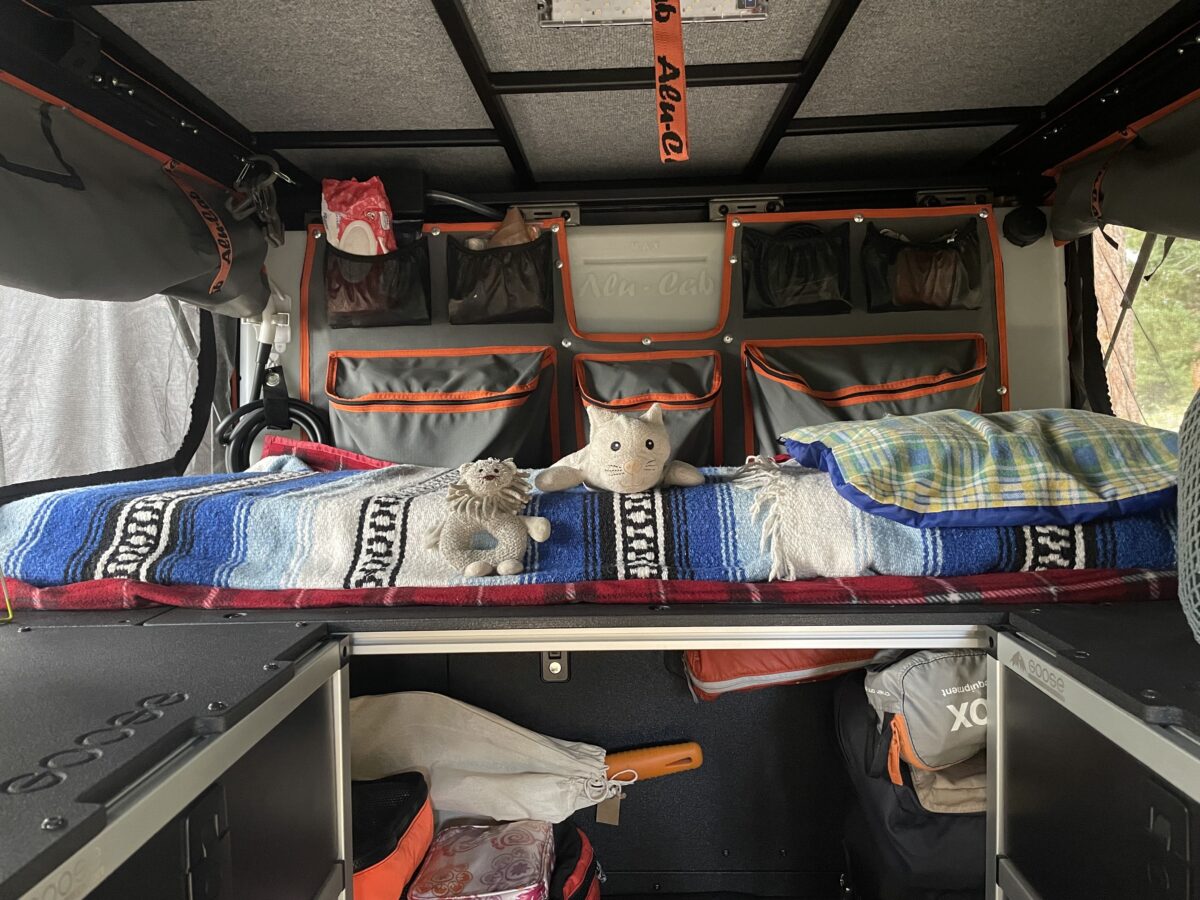
The World as Classroom
Caspian’s perception of normalcy reveals how profoundly this lifestyle shapes worldview. Brittany shares a revealing anecdote: Early during a period when they were staying in one place for several months, Caspian told Eric, ‘We’re on vacation!’ ‘What do you mean?’ asked Eric. ‘We’re staying in one place, so we’re on vacation!’ For Caspian, vacation means staying put instead of going somewhere. Because going somewhere is everyday-normal for him.”
This inversion of conventional expectations extends beyond terminology to fundamental character development. “Travel has made him friendly,” Brittany observes. “Strangers are friends he hasn’t met yet. He is used to befriending people quickly and making the most of time with them. He knows their time together will be brief.” Perhaps more importantly, travel has cultivated remarkable flexibility: “There are many mornings we wake up and don’t know where we’re spending that night. And when we do make a plan, it is normal for that plan to change–sometimes multiple times–when camp doesn’t work or we get stuck in the mud for hours.”
His linguistic confidence mirrors this adaptability: “Caspian also has a lot of confidence in his ability to learn languages, as he’s now conversationally fluent in Spanish and obsessed with Portuguese after only two months in Brazil.”
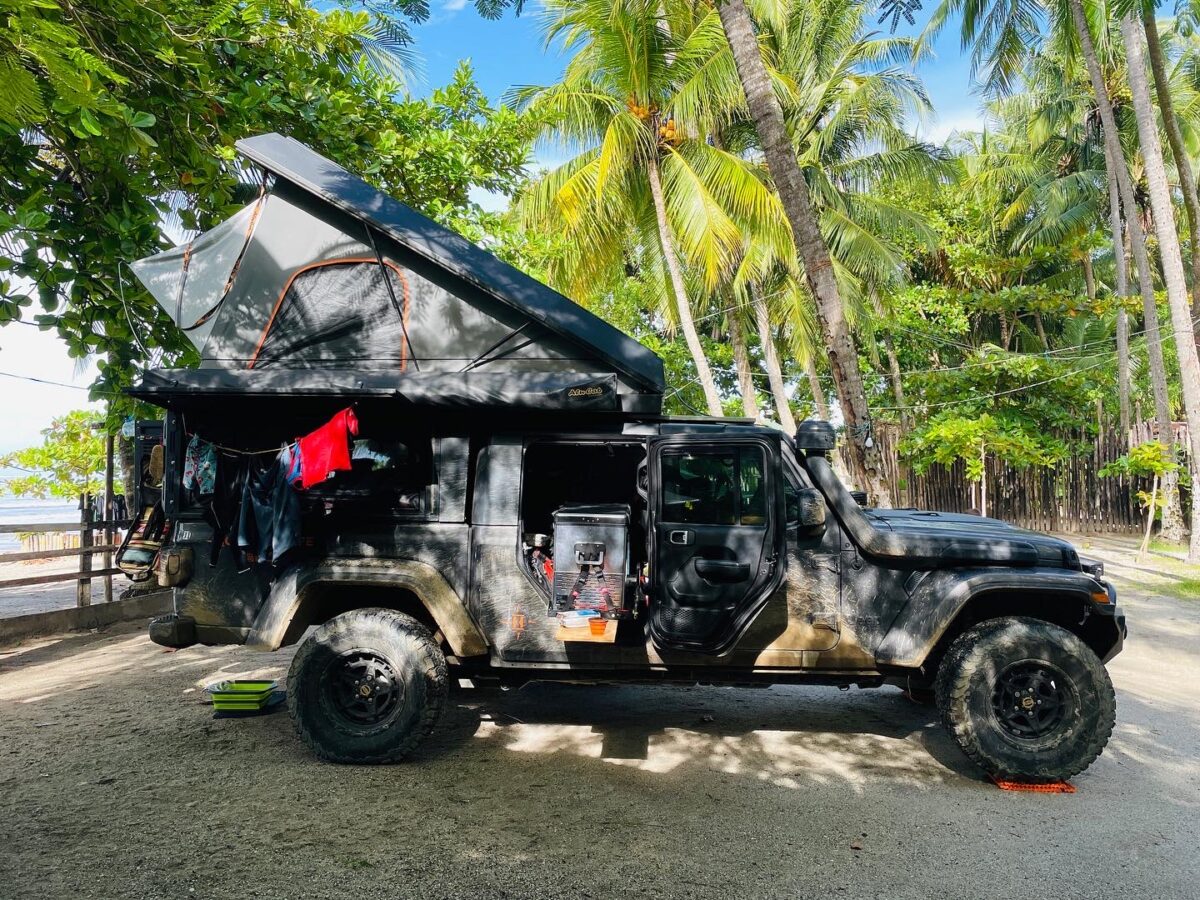
The Balancing Act
Managing relationships, responsibilities, and unexpected challenges within their mobile footprint requires constant negotiation and intentionality.
“It’s really hard. It will always be hard,” Brittany admits regarding their multitasking roles as parents, teachers, spouses, mechanics, and travel partners. “When we started this international chapter, I thought I’d learn how to juggle all these roles. What I’ve accepted this year is that we’re living a chapter when perfect balance is impossible. What’s most important is to put our best foot forward, stay flexible, treat each other with kindness, and make good decisions each day.”
This acknowledgment of imperfection extends to conflict resolution. The couple’s differing risk tolerances create natural tension: “Eric is the one who is security-minded and risk-averse. He feels the weight of Caspian and my safety, and he doesn’t want to jeopardize it just so we can see some wild camp or drive a remote track. He also has a lot of mechanical sympathy, understanding this Gladiator has to make it around the world where parts are rarely available. On the other hand, I’m the one to throw caution to the wind and push boundaries.”
Their solution? “When conflict arises, our tried-and-true solution is to put the other person first. Swallow our pride, silence our tongue, and be humble. Wow, is that hard. But it works every time.”
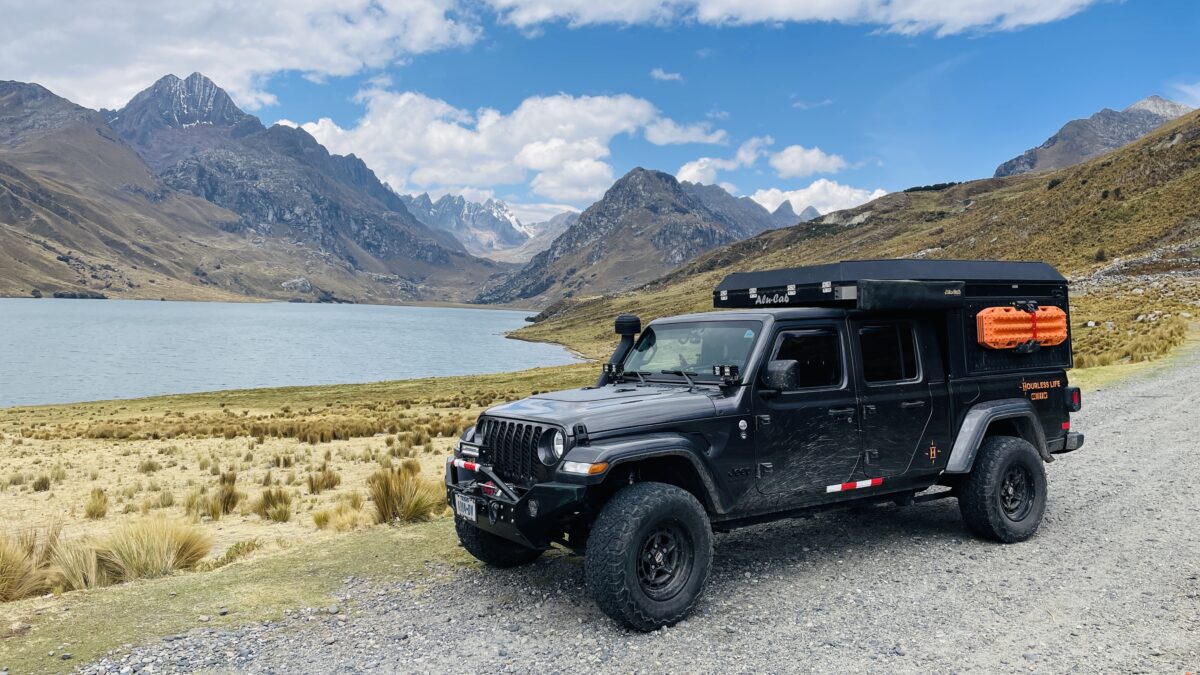
Shattering Misconceptions
If one theme emerges consistently from the Highlands’ years in Latin America, it’s the profound disconnect between common perceptions and lived reality.
“Whenever we bring up Latin America, we always get questions about safety and security,” Brittany notes. “Just like when we first went to Mexico many years ago, there are assumptions about how dangerous it is and, though unspoken, how dangerous the people are.”
Their experience consistently revealed instead a region characterized by extraordinary kindness and hospitality. “Latin Americans were incredibly kind and hospitable to us. They went out of their way, constantly, to take care of us and make us feel welcomed in their town or country.”
One incident in Brazil particularly encapsulates this spirit of generosity: “I had rhinovirus at a remote beach campground in Brazil when a Brazilian family camped next to us in their Defender. Without knowing us at all, they invited Eric and Caspian on a day trip to a nearby island, letting me sleep in the Jeep. When they returned later in the day, the mom made soup for me and helped feed Eric and Caspian. They didn’t know English or Spanish, and we didn’t know Portuguese, but that didn’t matter. They went so far out of their way for us, complete strangers.”
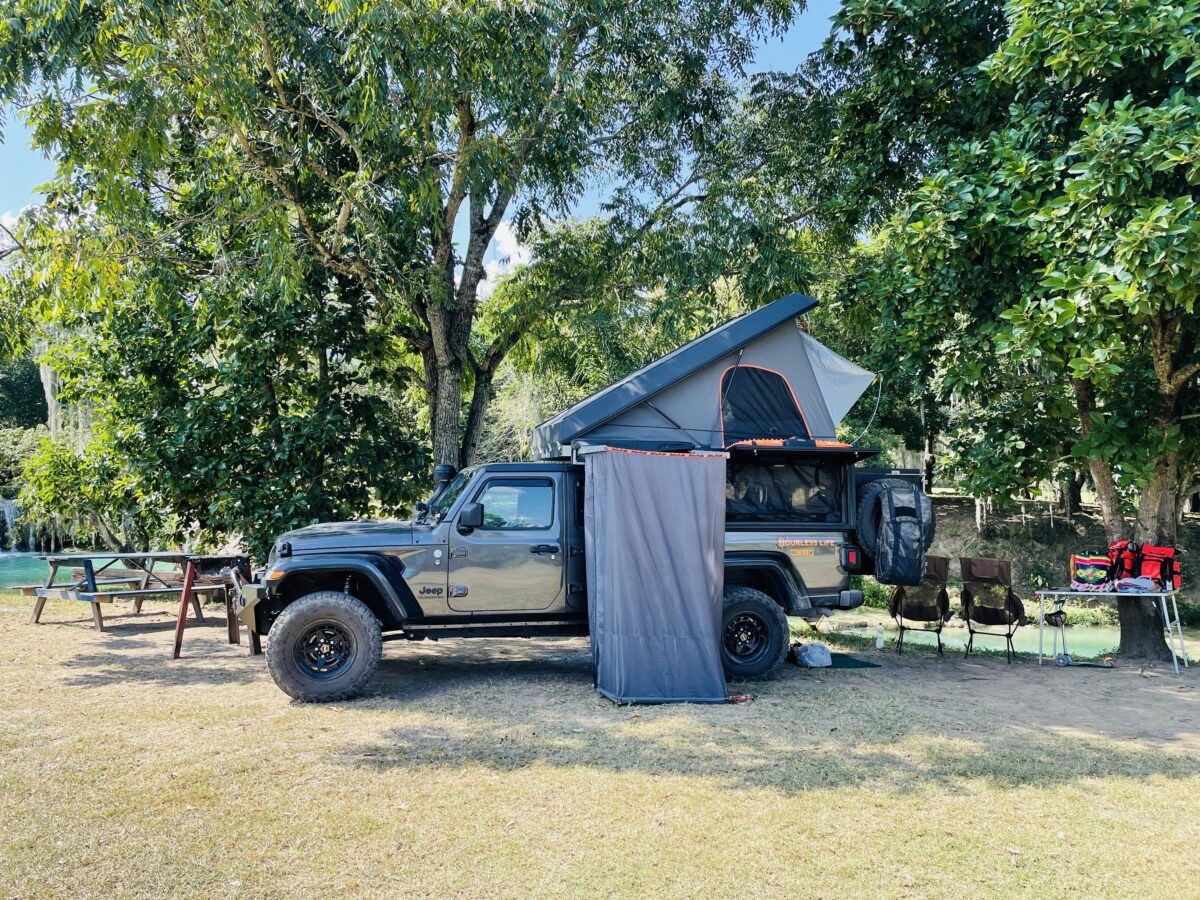
African Horizons and Beyond
As the Highlands prepare to ship their vehicle from Montevideo to Cape Town for the African leg of their journey, new challenges await—most notably obtaining a carnet de passage, a document unfamiliar to most American overlanders.
“Europeans have quite literally made fun of me for asking so many questions and acting like the carnet is a big deal,” Brittany laughs. “But you have to understand that it’s a completely foreign concept for Americans; we can drive all the way to Argentina without one.”
Africa’s unique requirements mean their travel style must adapt: “We can’t leave our travels open-ended like we did in Latin America because we have to pay a non-refundable fee for every year we have a carnet. So our route and its timing need to be carefully planned, which will be a huge change for us.”
Despite these logistical complexities, the family anticipates African cultures will feel familiar to Caspian: “He isn’t used to cultures where people tend to keep to themselves. So I think he’ll feel very at home in Africa as he meets other children, and people in general.”
Their original 10-15 year circumnavigation estimate has refined to a more informed timeline: “We’re four years in and we think we have about six to go–with a more knowledgeable perspective now. That’ll put Caspian at 14, with the flexibility to enjoy his remaining teenage years the way he’d like.”
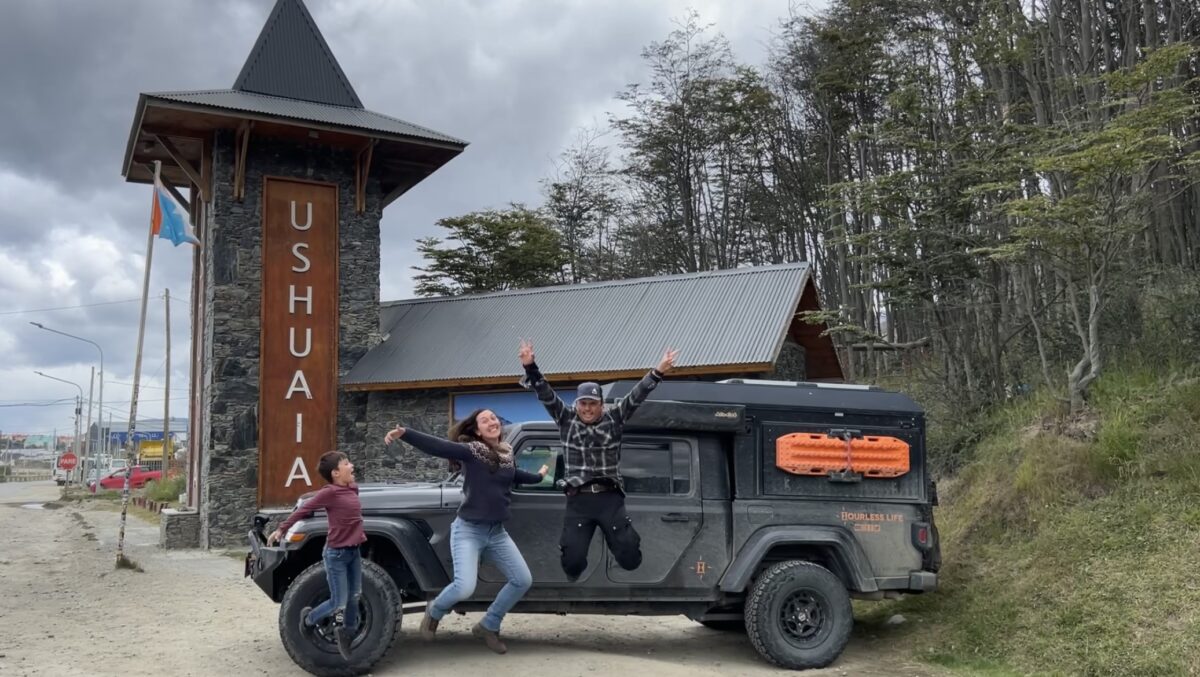
The Unconventional Normal
What emerges most powerfully from the Highlands’ story isn’t the exotic locations or mechanical triumphs, but the quiet normalization of a life radically different. Their journey proves that family isn’t defined by a stationary home but by shared commitment to growth, curiosity, and mutual support.
As Brittany reflects: “We often turn to each other and say how thankful we are for our home. We’re so grateful to the entire Alu-Cab team for engineering reliable products that can withstand extensive use. With our unpredictable lives, it’s a comfort to have a space we can rely on.”
Their message to families contemplating similar adventures? “Start with what you have, and don’t spend so much on a vehicle and gear that you don’t have anything left over to actually explore.” Their own method involved meticulous refinement: “Every overnight trip, we’d make lists of what we used, what we didn’t use, and what we wish we had packed. That allowed us to hone our collection of kit. Along the way, we were getting an idea of how we like to travel.”
Perhaps most importantly, they emphasize addressing internal readiness before external arrangements: “I recommend people do inner work on themselves before they dive into extensive travel. Travel is used as a means of escape, but it doesn’t ultimately deliver. Wherever you go, there you are.”
Through twelve years, three continents, and countless moments of challenge and wonder, the Highlands have discovered that the most significant journeys aren’t measured in miles but in transformed perspectives—for parents and child alike. This is family adventure travel at its core.
